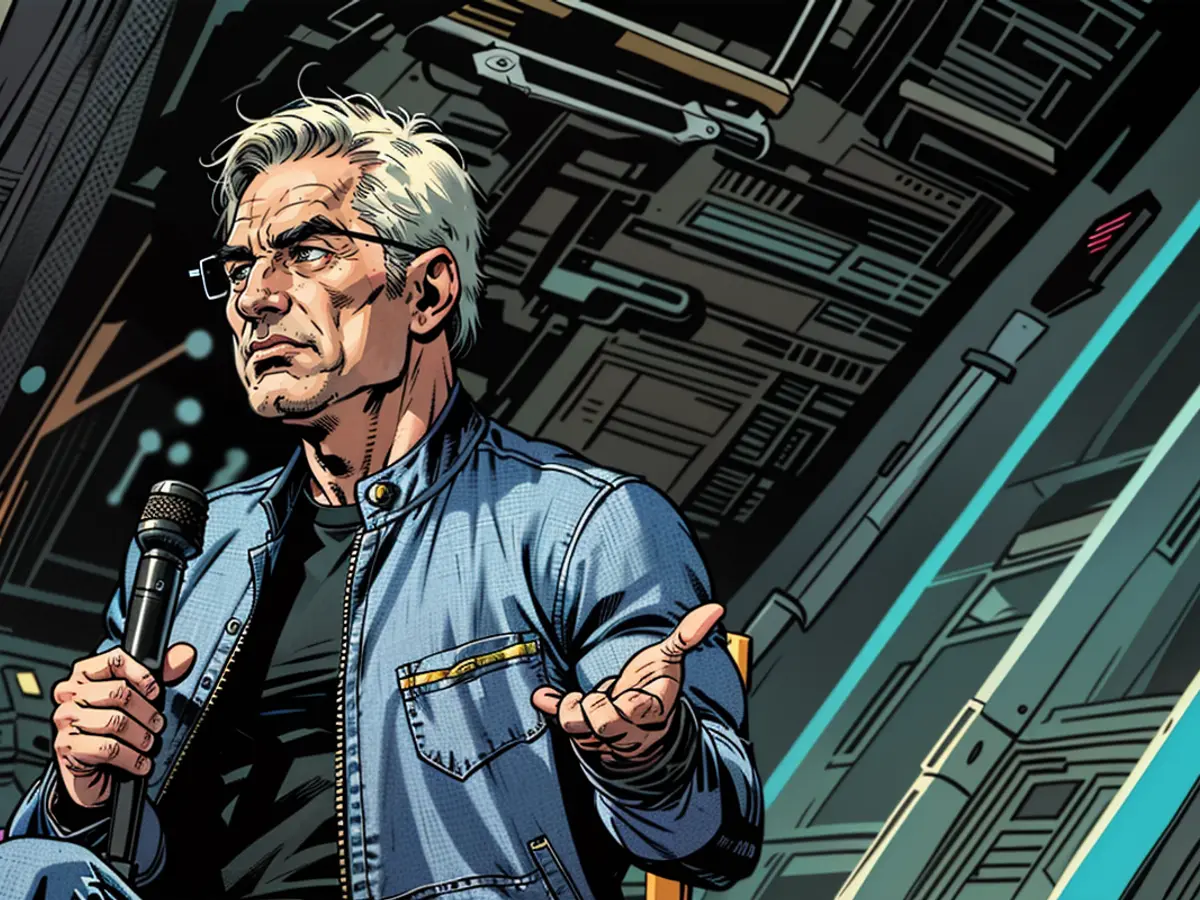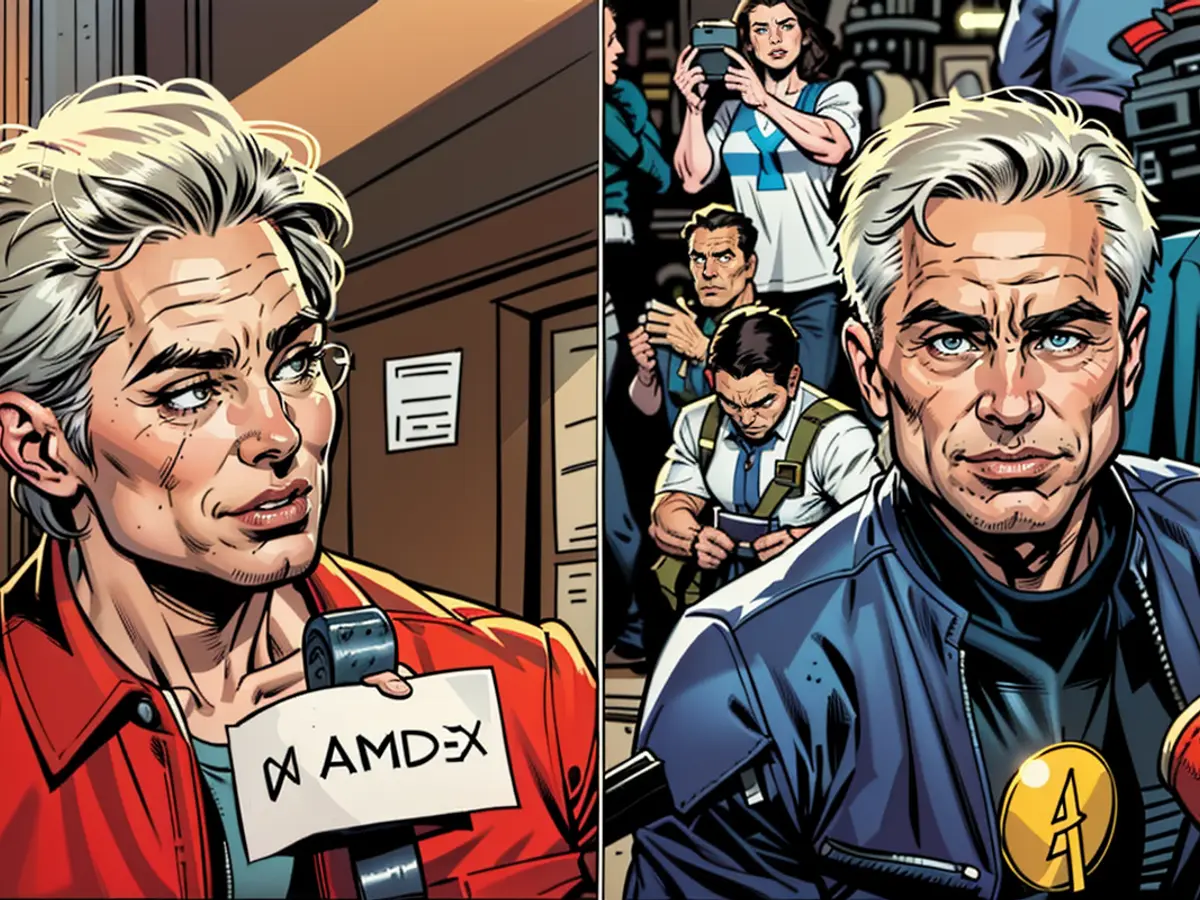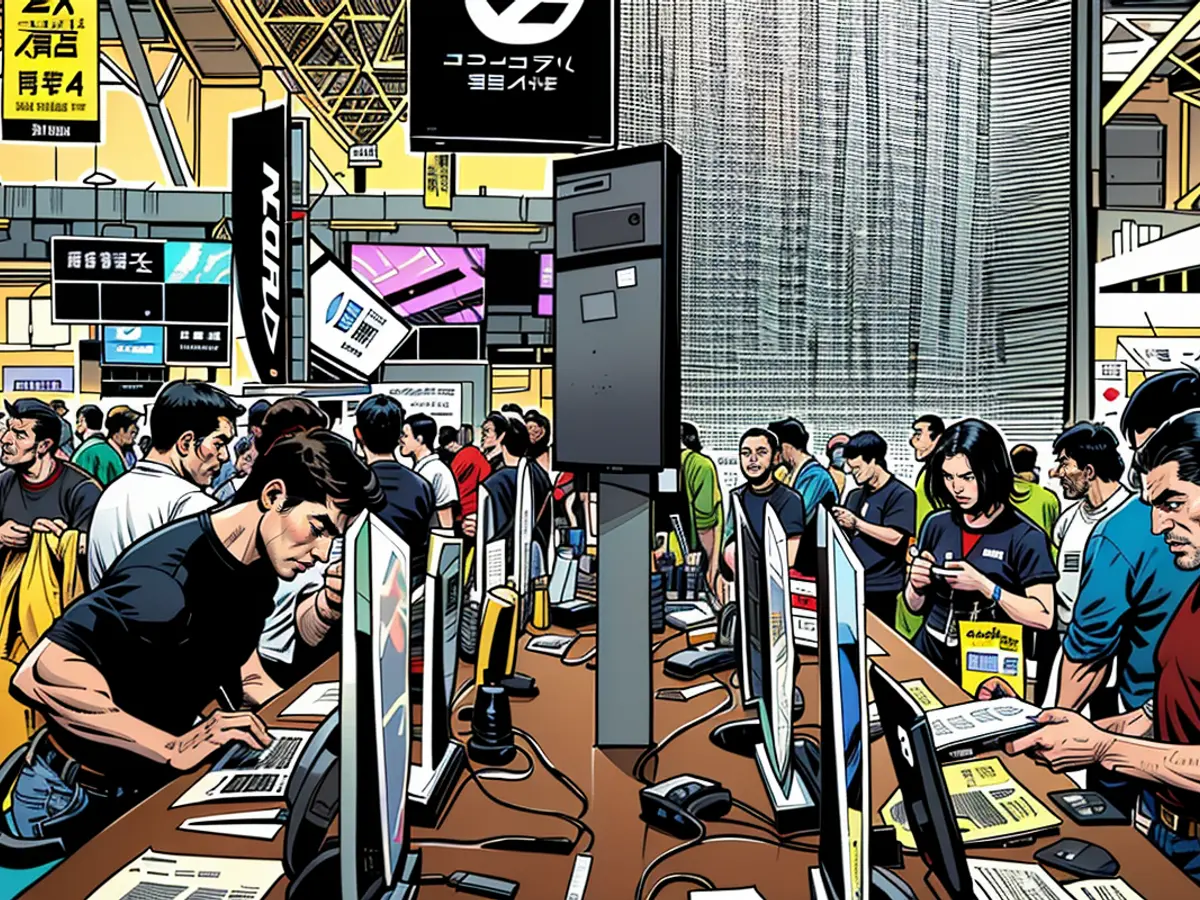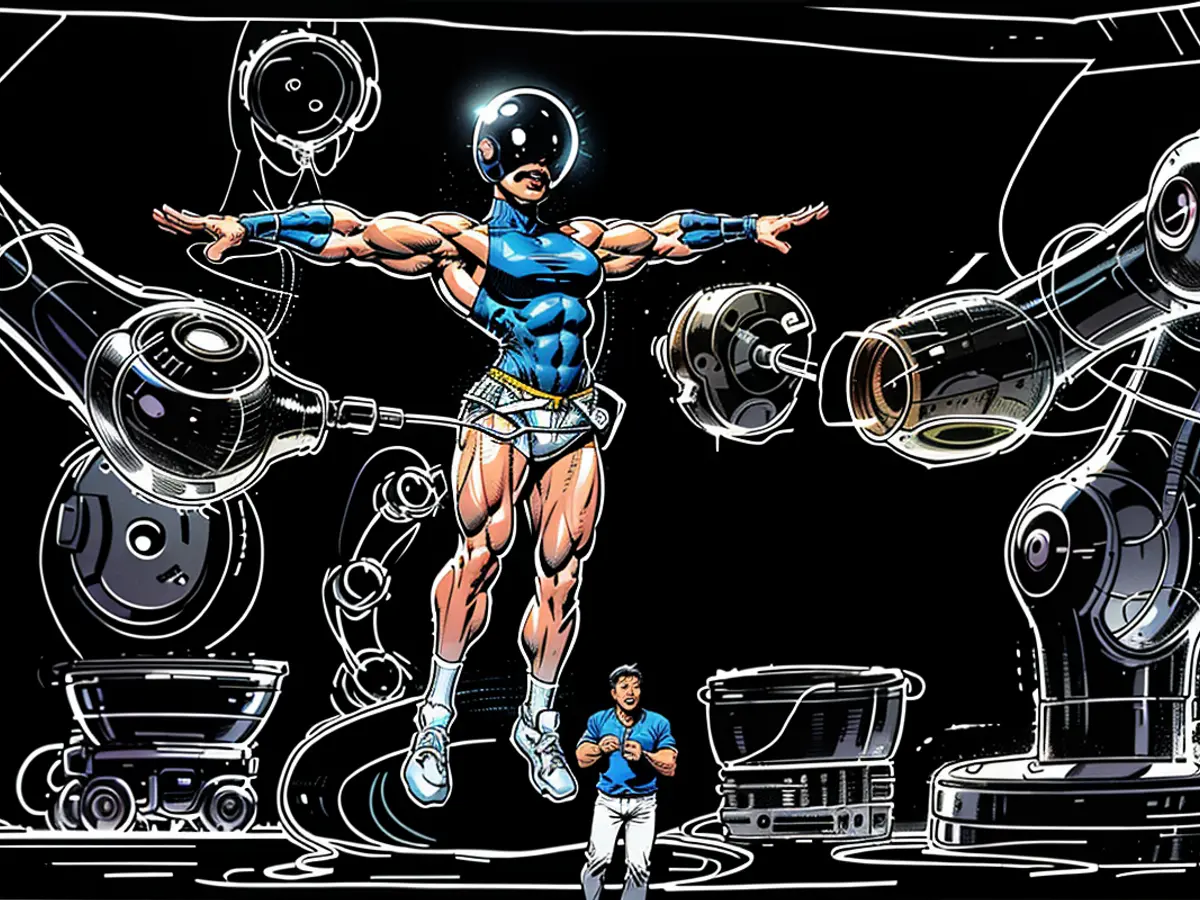Nvidia's CEO receives star-like reception in AI-centric Taiwan.
Dressed in his iconic black leather jacket, Huang addressed a packed stadium in Taipei's capital city on Sunday, emphasizing Taiwan's vital role in creating the framework for artificial intelligence (AI) technology - a significant factor in Nvidia's success.
He declared, "Taiwan is the silent hero, a strong and reliable backbone of the world." Images of nearly 100 of the company's Taiwanese suppliers were displayed behind him.
Jen-Hsun Huang's every movement has been documented by fans and media alike. From throwing the first pitch at a baseball game to exploring night markets, his actions have earned him the nickname "Jensanity."
The crowd wasn't the only one eager to meet a fellow tech executive. Other tech luminaries like Lisa Su of AMD, Pat Gelsinger of Intel, and Cristiano Amon of Qualcomm were also in attendance for Computex, an annual trade show.
Once an unassuming sourcing fair for personal computers and other gadgets, Computex has recently gained international attention as a result of the fierce competition to develop generative AI applications.
To cater to this growing demand, Nvidia, AMD, and other companies rely on Taiwanese semiconductor manufacturer TSMC for their most advanced chips. The company is estimated to make 90% of the world's highly-advanced chips, making Taiwan a key player in the AI revolution that has turned the event into the year's must-attend destination.
Chris Miller, author of "Chip War: The Fight for the World's Most Critical Technology," explained to CNN why these CEOs are so interested in Taiwan, "Tech CEOs are visiting Taiwan to consolidate their relationships with chip manufacturers and server assemblers, and to tap into the country's AI talent."
Media Madness

Huang's open admiration for Taiwan has received a lot of attention from fans and media alike, with some considering it a game-changer. However, such praise for Taiwan is not a new phenomenon for Huang. He's previously acknowledged the island's central role in the electronics industry.
However, these positive sentiments aren't universally shared. As China claims Taiwan as its own territory, any acknowledgment of the island's independence can lead to tensions.
Beijing typically and negatively reacts to such claims, but its state media hasn't said much about Huang's recent statements.
One Weibo user weighed in on the matter, posting, "We don't need them, but they need us."
China's ascension to global technological prominence has been slowed by bans on the export of AI chips to China. Tencent and other Chinese tech giants rushed to stockpile these chips before the bans came into effect.
While Nvidia's reportedly developing new chips for the Chinese market, Huang has emphasized the importance of Taiwan in the company's past, present, and future.
AMD's Lisa Su shared her perspective: "We've been manufacturing here for a long time. Taiwan is particularly important to the semiconductor ecosystem."

Despite the ongoing political tensions, the presence of these tech powerhouses in Computex seems to indicate a collective decision to stay focused on innovation.
CNN asked Huang if TSMC's rising importance in the industry has left the company with a heavy burden, given the potential conflict between the US and China.
He responded, "We've been doing technology, engineering, and conducting business here in Taiwan for almost three decades, and we're going to continue to do so."
Taiwan faces increased pressure to diversify its production base following chip shortages during the pandemic and the intensifying geopolitical tensions.
In 2022, the US signed the Chips and Science Act into law, which aims to boost domestic chip production and lessen reliance on Asian manufacturing. Biden's decision was met with a 'manufacturing resurgence,' according to Intel CEO Pat Gelsinger.
Gelsinger told CNN at a media briefing, "We have great respect for the ecosystem here in Taiwan ... But the world needs more geographically balanced and resilient supply chains, and I think it's starting to take shape."


Read also:
Nvidia's success in the tech industry is significantly reliant on Taiwanese semiconductor manufacturer TSMC, which produces 90% of the world's highly-advanced chips. (from the given text)
In addition, other tech companies like AMD and Intel also recognize Taiwan's importance in the semiconductor industry and AI development, as they also rely on TSMC for their most advanced chips. (follow-up sentence)








